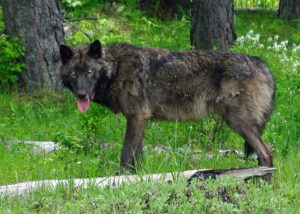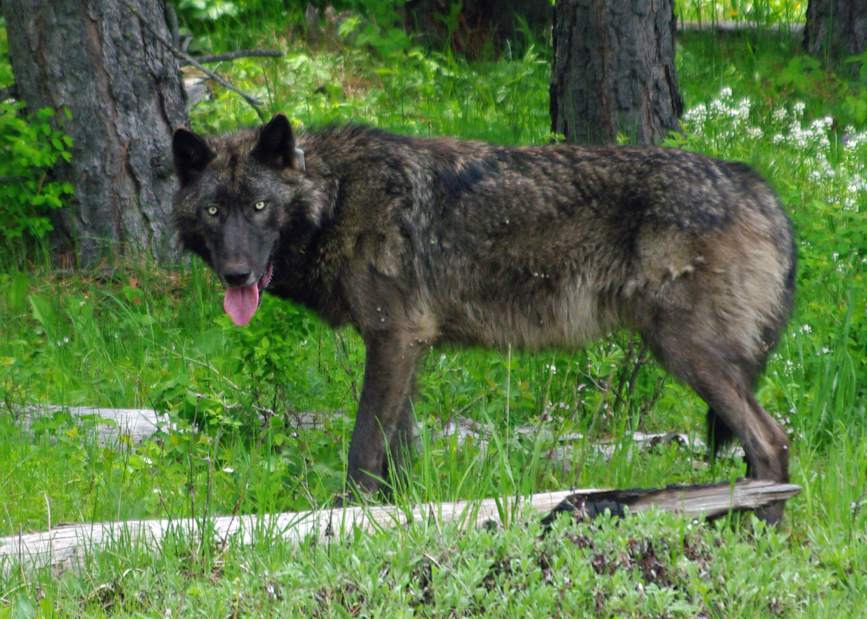
The Intelligence that the Livestock Industry brings is basically Fake News, However We will continue to shed the needed light upon these False Statements. Ranchers clearly know not what they speak, they would prefer that the public believe their false statements. However, Cattle do not belong in the wild where they harass and compete for our Wildlifes food.
Oregon had to remove the gray wolf from the state’s endangered species list because that protection only applies to native species and Oregon’s wolves originally came from Canada, cattle and farm groups argued in a court filing this week.
The filing from the Oregon Cattlemen’s Association and Oregon Farm Bureau Federation defended the state’s previous change in status of gray wolves.
In 2015, the Oregon Fish and Wildlife Commission removed wolves from the state’s endangered list across Oregon after making several determinations: The species was not in danger of extinction in a significant part of its range; existing programs could protect the wolves and their habitat; the wolf population was projected to increase; wolves showed up over a large geographic area in Oregon; and the state’s wolf management plan ensures their protection regardless of endangered status.
Cascadia Wildlands, the Center for Biological Diversity and Oregon Wild sued at the state Court of Appeals, arguing that wolves are still in danger of extinction through much of their range in Oregon and their status should not have been changed.
They occupy only a small percentage of the natural range in Oregon and the state had to consider whether wolves were endangered in a significant part of their historic range in Oregon — not just part of it — before taking them off the endangered species list, the conservation groups have said.
In the latest round of filings this week, the state defended its action by citing progress in the wolf’s population in Oregon and by noting that the state legislature had affirmed the action with legislation in 2016.
Because that legislation ratified taking wolves off the list, the court lacks the ability to reverse it, the state argued.
Supporting the state action, the agriculture groups argued that the Great Plains wolf is the only wolf subspecies native to Oregon and that the Canadian timber wolf is the type of wolf now living in the state. Oregon should not have designated the entire gray wolf species as endangered to begin with, the cattlemen and farm groups said. They called for the court to reaffirm the state’s decision on the gray wolf.
The groups further argued that the state’s method of counting the wolves in Oregon winds up undercounting them and that cattle and farm community members have been financially and emotionally harmed by wolves attacking livestock.
Nick Cady, attorney for Cascadia Wildlands, said he was surprised to see the agriculture groups suddenly raise the argument about the species of wolf because that argument relies on a study that the federal government tried to use years ago when seeking to delist wolves at the federal level.
“That’s kind of been thoroughly debunked,” Cady said of the study, adding that it does not reflect current understanding of gray wolves. “That is somewhat of a throw-away argument.”
He also was surprised at the timing of bringing that argument up now, because it hadn’t been raised before during the state delisting effort. But he said he recalls the idea of an “angrier breed of Canadian wolves out to take your children away” coming up during wolf reintroduction efforts decades ago.
“It’s very interesting to see it now,” he said of the argument.
Further rounds of briefs will continue in the lawsuit over coming weeks and months.
Oregon has both federal and state protection levels and management for wolves. While the state removed its endangered status for wolves across all of Oregon, the federal Endangered Species Act still covers wolves in the state west of Highways 395, 78 and 95 — the boundary for federal and state designations. Those roads reach from north of Pendleton to Burns and then veer southeast to the southern end of the state. Wolves in that eastern third of Oregon have also been removed from the federal endangered listing. The state’s wolf management plan covers those wolves and the state contends the plan protects them like state endangered-status would.
